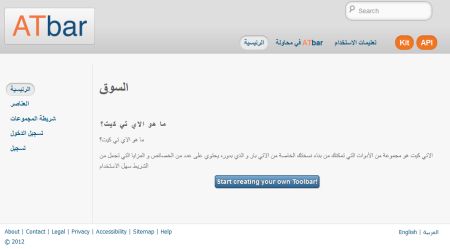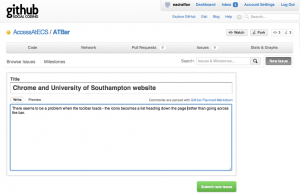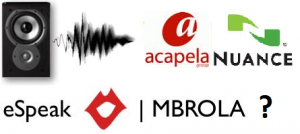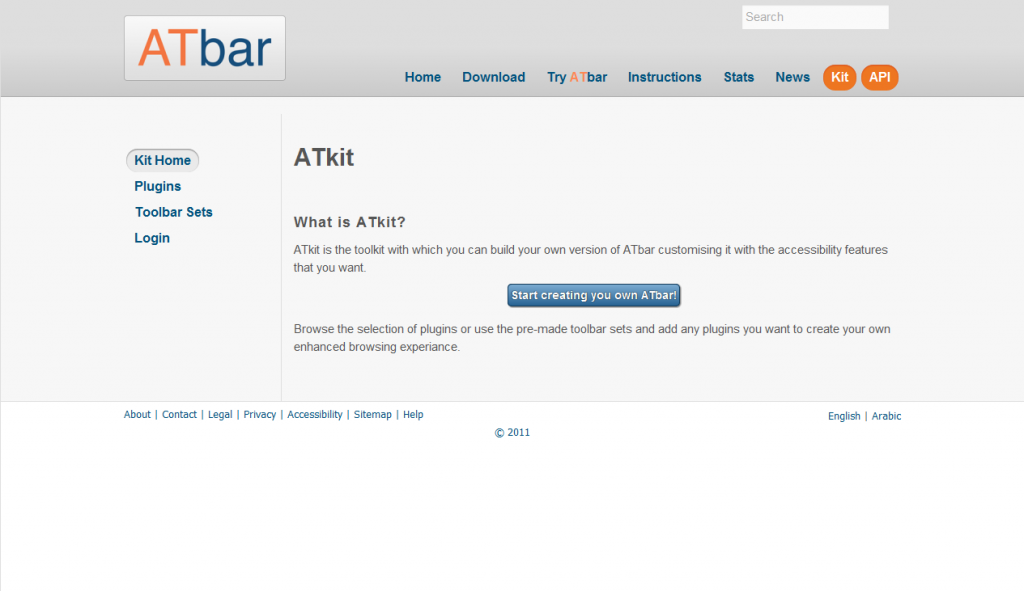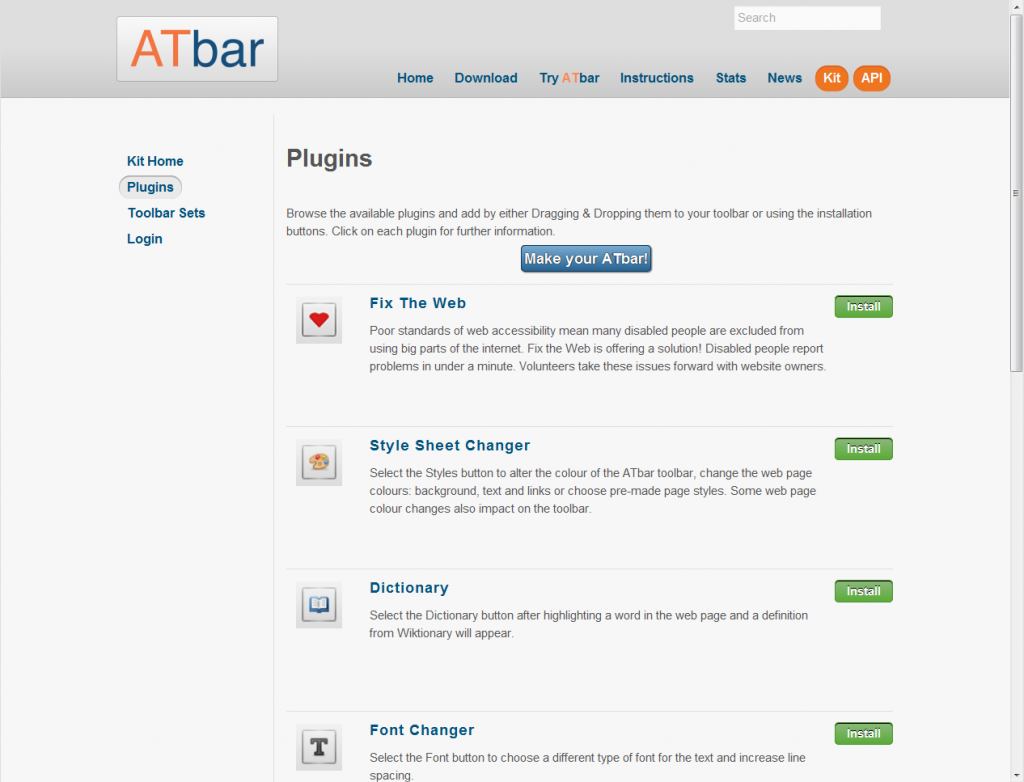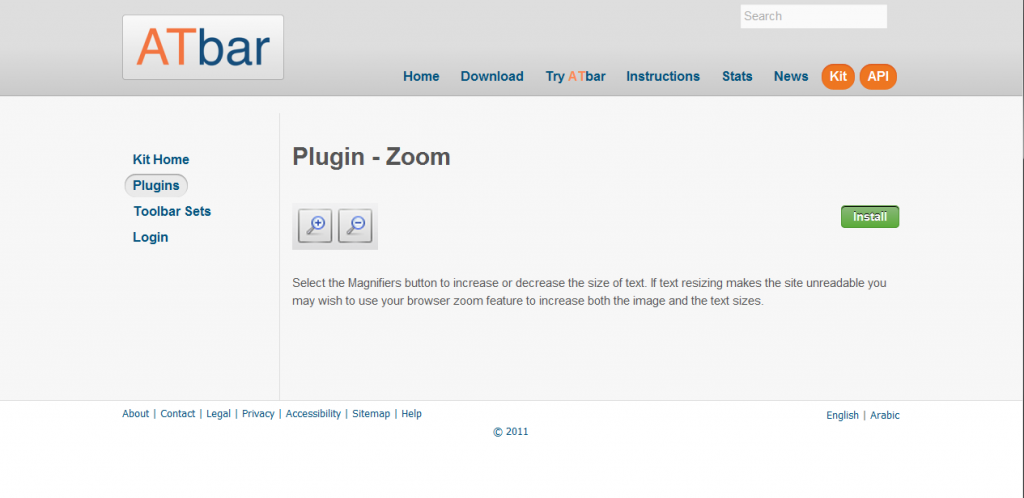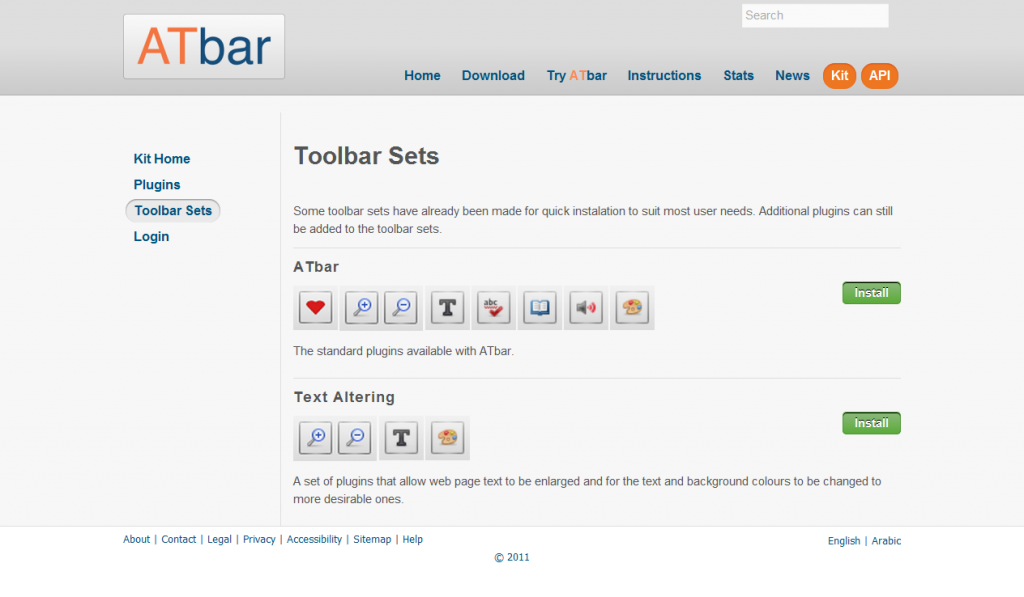 The last few weeks since the Christmas break have flown by with a flurry of activity which is retrospect seems at times to have made us feel as if we have been going two steps forward only to have to go at least one if not more steps backward! But there have been some breakthroughs in the areas of Spell checking, Text to Speech, Word Prediction and the ATKit website.
The last few weeks since the Christmas break have flown by with a flurry of activity which is retrospect seems at times to have made us feel as if we have been going two steps forward only to have to go at least one if not more steps backward! But there have been some breakthroughs in the areas of Spell checking, Text to Speech, Word Prediction and the ATKit website.
Spell Checking
Thanks to Mashael AlKadi we have a really clear evaluation of the spell checker titled Dyslexic Typing Errors in Arabic (PDF download) and also thank you to Mina Monta who commented that:
- “Some of the words are correct in spell & in the meaning but AT spell checker detect that those are wrong words
- In the suggested word list, there is no sorting according to the priority of the suggested word (according to the relativity between the suggested word & the original wrong word)
- Some of the suggested words are wrong in spell
- The number of the suggested words is to high comparing with MS Word spell checker.
- MS Word is better in detecting the wrong words in grammar (the word has correct spell) “
Sadly research into English spell checkers has revealed that they are not as accurate as we had hoped when it comes to providing false errors and real words or homophones as can be seen from this presentation about online spell checking.
I asked Mashael whether adding a new corpus would help as Seb has succeeded in collecting a larger Arabic corpus and has put in some code to make it possible to add this extended vocabulary. However, Mashael’s comment was:
“regarding adding new words, do you mean expanding the tool’s dictionary? I don’t think you should worry beacuse it was working very well expect for certain remarks that I’ve said such as the tool’s behavior with words attached to prepositions. In such case only some adjustments should be applied to the tool’s mechanism and I think it will work great.”
So with the support of Erik and Mina in our last meeting, it has been decided that we will work on particular improvements as a future aim with the help of our Arabic speaking colleagues.
Text to Speech
It has been a bit of a trial and error period starting with the withdrawal of Google Translate. We were aware this might happen, but had rather hoped there could be a reprieve as this was a free option, although in the tests carried out with 5 Arabic speaking students the results were poor in comparison to Acapela and Vocalizer voices. The sadness also on the part of the time spent on this work as it was something we had proved was possible to achieve – a free TTS on the toolbar. Microsoft Speak Method was also tried and tested – but the TTS appeared to leave off initial sounds and the voice was unacceptable to our beta testers.
We also learnt that NVDA in Arabic was only going to work with the Arabic TTS offered by Microsoft and eSpeak and Festival with the Mbrola project was still an uphill struggle.
As a research project and definitely not for profit we also wondered if we could go back to Google Translate but the agreement specifically says “The program may be used only by registered researchers and their teams, and access may not be shared with others.”
Meanwhile Fadwa Mohamad kindly visited King Abdulaziz City for Science and Technology(KACST) over the Christmas period and met Professor Ibrahim A. Almosallam who has been in touch to say that they are developing an Arabic Text to Speech application, but it has yet to be released. I am enquiring as to whether this is a desktop application or a VAAS system (Voice as a Service) such as that offered by Acapela in Arabic.
Seb then spent time working on the Acapela VAAS system and this was shown to work well in all the tests although there are issues when a whole page is read out. It is felt that it might be more appropriate to restrict the call on the servers and just allow text to be highlighted and then spoken. We now have to negotiate the way we can work with this system, as the final output needs to be free to the user.
There is also the option of building a new Arabic voice and this is being explored – although it would take time and effort to generate the corpus, normalise the output and beta test, even when there are engines available to achieve this aim….. A new build Arabic voice needs further discussion but we have the connections in place.
WordPrediction
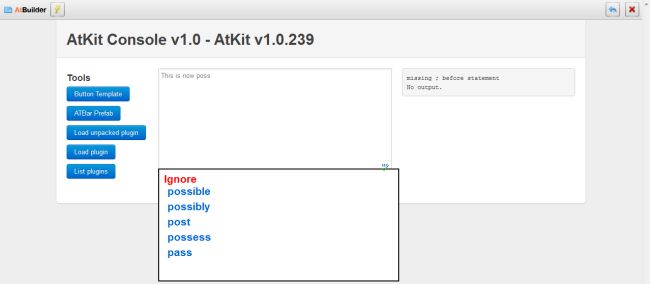 Seb has been able to show how this feature for the toolbar is possible in English and the background architecture is in place for the Arabic version pending the language pack.
Seb has been able to show how this feature for the toolbar is possible in English and the background architecture is in place for the Arabic version pending the language pack.
ATKit website
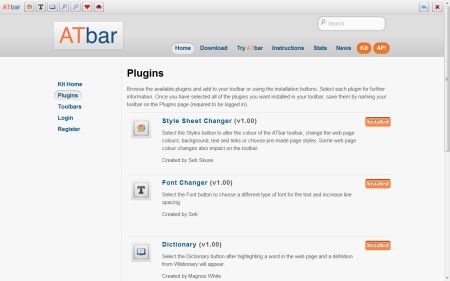 It has been agreed that the mock up of the ATKit website that was available as a demonstrator should be taken forward and developed. This has been completed with the ability to add plugins both free and those that require payment (for instance where a TTS requires a fee). Users can register, build their own toolbar and save the results. The next step is a completed Arabic translation and the ability to author plugins …
It has been agreed that the mock up of the ATKit website that was available as a demonstrator should be taken forward and developed. This has been completed with the ability to add plugins both free and those that require payment (for instance where a TTS requires a fee). Users can register, build their own toolbar and save the results. The next step is a completed Arabic translation and the ability to author plugins …

